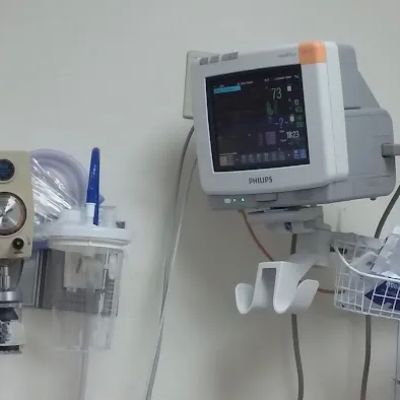- What Are Diuretics?
- How Diuretics Help Your Heart Health
- Different Types of Diuretics
- Benefits of Diuretics for Heart Health
- How to Use Diuretics Safely
What Are Diuretics?
Diuretics, commonly known as "water pills," are a class of medications designed to help the body remove excess salt and water through urine. They work by increasing the amount of urine produced by the kidneys, which in turn reduces the overall fluid volume in the body. While diuretics are often used to treat conditions like high blood pressure, edema (swelling), and kidney disease, their most significant impact is on heart health, particularly in individuals dealing with heart failure or hypertension.
By flushing excess fluids from the body, diuretics help reduce the strain on the heart, making them an essential treatment for managing conditions that affect cardiovascular health. They are typically prescribed in combination with other medications for optimal heart care. Understanding how diuretics function and their role in heart health can help you better appreciate their benefits and limitations.

How Diuretics Help Your Heart Health
One of the primary ways diuretics contribute to heart health is by helping to lower blood pressure. High blood pressure is a major risk factor for heart disease and stroke, and by reducing excess fluid in the body, diuretics help lower the volume of blood circulating through the blood vessels, which ultimately lowers blood pressure.
Additionally, diuretics are vital for managing fluid retention, which can be a concern for people with heart failure. In heart failure, the heart becomes less efficient at pumping blood, which can lead to fluid buildup in the lungs, abdomen, and legs. Diuretics help reduce this fluid retention, easing the burden on the heart and improving symptoms like shortness of breath and swelling.
For patients dealing with hypertension or chronic heart conditions, diuretics can be a game-changer in managing symptoms and improving quality of life. By reducing fluid buildup and lowering blood pressure, these medications can significantly reduce the risks associated with heart disease, such as heart attack, stroke, and kidney damage.
Deborah Heart and Lung Center
deborah heart and lung center
200 Trenton Rd, Browns Mills, NJ 08015, USA

Different Types of Diuretics
There are several types of diuretics, each working in slightly different ways. Understanding the various types can help you better understand how they impact heart health:
- Thiazide Diuretics: These are the most commonly prescribed diuretics for treating high blood pressure and mild heart failure. They work by inhibiting sodium reabsorption in the kidneys, leading to increased urine production and decreased blood volume. Popular thiazide diuretics include hydrochlorothiazide (HCTZ) and chlorthalidone.
- Loop Diuretics: Often prescribed for more severe cases of heart failure or kidney disease, loop diuretics work on the loop of Henle in the kidneys. These diuretics are powerful and help quickly remove large amounts of fluid from the body. Furosemide (Lasix) is a common loop diuretic.
- Potassium-Sparing Diuretics: These diuretics are used in combination with other types of diuretics to help prevent potassium loss. They work by blocking the action of aldosterone, a hormone that causes the kidneys to retain sodium and water. Spironolactone is a well-known potassium-sparing diuretic.
Each type of diuretic has its own set of benefits and potential side effects, and your doctor will choose the most appropriate one based on your specific health condition. It’s important to follow your healthcare provider’s instructions closely to ensure the safe and effective use of these medications.
Benefits of Diuretics for Heart Health
The benefits of diuretics for heart health are wide-ranging. Here are some of the key advantages:
- Lowering Blood Pressure: Diuretics are one of the most effective treatments for high blood pressure, a leading cause of heart disease and stroke. By reducing the volume of blood in the circulatory system, diuretics help lower blood pressure, reducing the strain on the heart.
- Reducing Fluid Retention: For individuals with heart failure or other cardiovascular conditions, diuretics help reduce fluid buildup in the body. This prevents the heart from becoming overburdened by excess fluid and helps relieve symptoms like swelling, shortness of breath, and fatigue.
- Improved Heart Function: By decreasing the fluid volume and pressure within the heart and blood vessels, diuretics help improve the overall function of the heart, particularly in patients with heart failure.
- Protecting Kidney Function: High blood pressure and fluid retention can negatively impact kidney function. By controlling blood pressure and fluid levels, diuretics can help protect the kidneys from damage.
How to Use Diuretics Safely
While diuretics can provide significant benefits for heart health, it’s important to use them safely. These medications can lead to dehydration and electrolyte imbalances if not taken correctly. Here are some tips for using diuretics safely:
- Follow Your Doctor’s Instructions: Always take diuretics as prescribed by your healthcare provider. They will determine the right dosage and timing to minimize side effects and maximize effectiveness.
- Monitor Fluid Intake: While diuretics help remove excess fluid, it’s important to stay hydrated. Make sure to drink enough water to avoid dehydration, but avoid excessive fluid intake, which could overwhelm your kidneys.
- Check Electrolyte Levels: Diuretics can affect potassium, sodium, and other electrolytes. Regular blood tests may be needed to ensure that your electrolyte levels remain balanced.
- Watch for Side Effects: Common side effects of diuretics include dizziness, low blood pressure, and dehydration. Contact your doctor if you experience any unusual symptoms or discomfort.
When used properly, diuretics can significantly improve heart health and quality of life. Be sure to work closely with your healthcare provider to ensure safe use and monitor any potential side effects.
If you’re looking for more information or support on heart health and medications, visit HeartCare Hub for expert advice and the best resources for managing heart health.






















Waterbury Hospital
waterbury hospital
64 Robbins St, Waterbury, CT 06708, USA